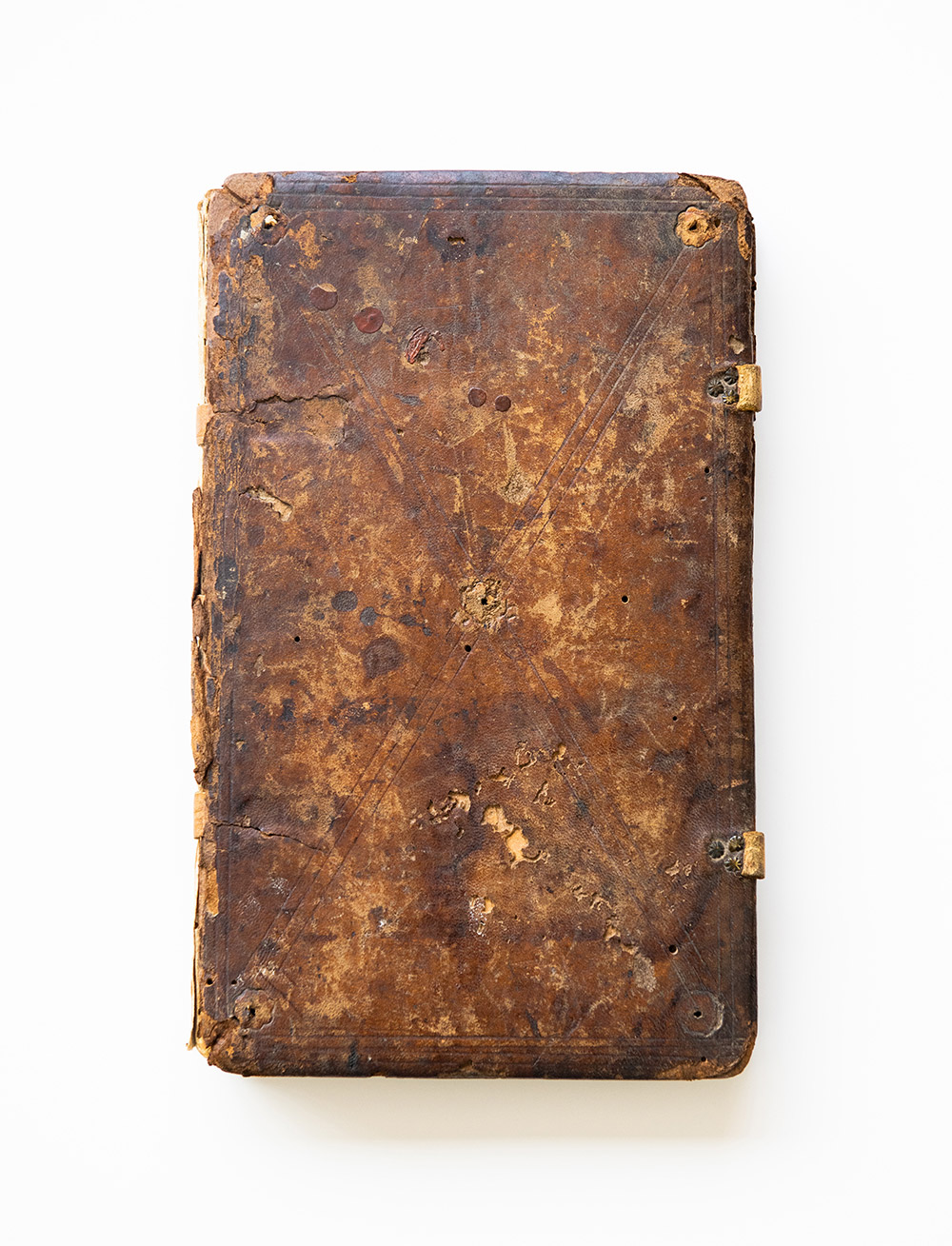Centuries-old texts penned by early astronomers Copernicus and Sacrobosco find new home at RIT
Valued at more than $1 million, texts will be used for student research and exploration
Carlos Ortiz /RIT
An early astronomy text, written by Copernicus and published in 1543, has been acquired by RIT’s Cary Graphic Arts Collection. The book explains his theory that the sun is the center of the universe.
The ancient astronomer Nicolaus Copernicus was the first scientist to document the theory that the sun is the center of the universe in his book, De Revolutionibus Orbium Coelestium (On the Revolutions of the Heavenly Spheres). That first edition book, along with a delicate manuscript from astronomer Johannes de Sacrobosco, that is contrary to Copernicus’ groundbreaking theory, has now found a permanent home at Rochester Institute of Technology.
The texts were donated to RIT’s Cary Graphic Arts Collection, one of the world’s premier libraries on graphic communication history and practices. The donor is Irene Conley, on behalf of her sister Ethel Harris, and in memory of her late brother, Martin Harris, and Ethel’s late husband, Joel Cohen, one of the original owners of the texts.
Carlos Ortiz/RIT
A medieval manuscript written by Sacrobosco is dated 1463 and contradicts Copernicus’ theory.
“My family, including my sister Rochelle Wynne, agreed that we wanted the precious texts to live somewhere they would be actively studied and used, rather than sold to a private collector,” said Conley, whose late brother attended RIT in the mid-1960s. “When the books arrived at RIT, I was so pleased to learn that students were carefully unwrapping them and that the plan is to use them for advanced work and research.”
The Copernicus text, published in 1543, is one of only 276 copies that survived through the centuries.
Originally written in the 13th century, Sacrobosco’s De sphaera mundi (On the Sphere of the World) followed the Ptolemaic model of the universe with the Earth as the center of the universe. This 15th-century copy of the manuscript is also a palimpsest, in which there are traces of an earlier text that was erased. As part of an ongoing project, RIT imaging science students will work to uncover and decipher the original writings.
The books will be on display in the new Cary Collection Research Center and will be spotlighted at the library’s reopening celebration scheduled for April 11.
According to Steven Galbraith, curator of the Cary Collection, the books will, indeed, have an active life on campus.
“We are thrilled that Irene Conley and Ethel Harris have bestowed such a significant and profound gift to RIT, which will provide our students and faculty with countless avenues for interdisciplinary research. In addition, the early theories of Copernicus align with RIT’s astrophysical sciences and technology programs, providing our students with inspiration from an essential astronomer and mathematician. Our university is the perfect home for these extraordinary texts.”





